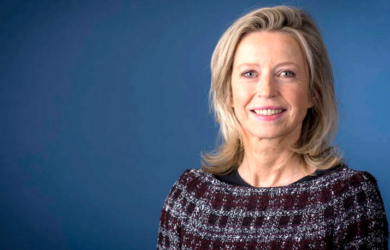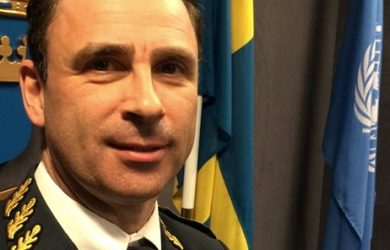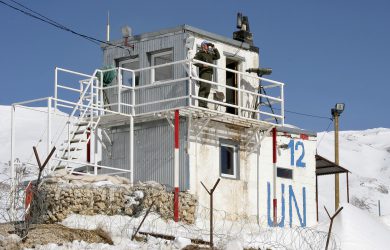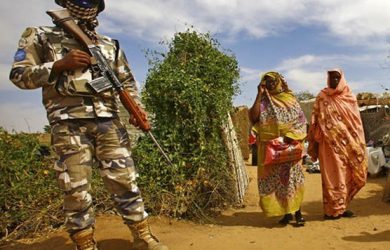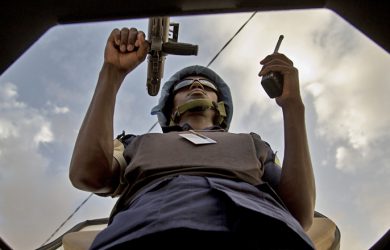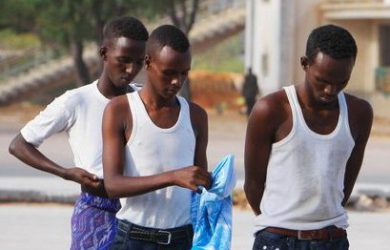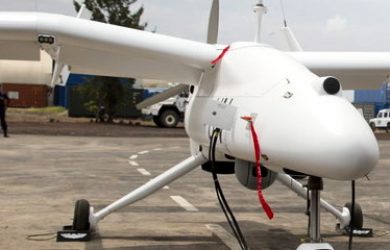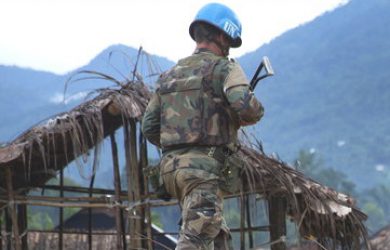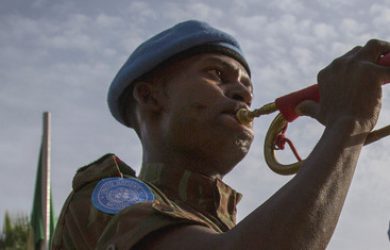- ABOUT US
- RESEARCH
- EDUCATION
- The Graduate School
- PhD Programme
- MSc Programmes
- Capacity Development
- News
- Design and Evaluation of Public Policies (DEPP)
- Design and Evaluation of Innovation Policies (DEIP)
- Evidence-Based Policy Research Methods (EPRM)
- Migration Management Diploma Programme (MMDP)
- Moving the Migration Policy Agenda Forward (MMPAF)
- Online Courses
- Short Courses (Masters)
- Tailor-made programmes
- UNU-MERIT, ITU Academy Training Centre
- Alumni
- Academic Funding
- NEWS
- EVENTS
- PUBLICATIONS
- LIBRARY
Words from the home front: Dutch Minister of Defence Kajsa Ollongren on UN peacekeeping
08 May 2023
The Dutch Minister of Defence, Kajsa Ollongren, tells UNU-MERIT how the Netherlands seeks to support United Nations operations in Europe and abroad Given its small population (17.5 million) and geographical footprint (with one-fifth the land area of an average U.S. state), the Netherlands has outsized military power, ranking 39 in the GlobalFirepower Index. How is the nation using its strength, both in Europe and beyond? Appointed in 2022, Dutch Minister of Defence Kajsa Ollongren has pol...
Continue Reading →PhD alumnus appointed Force Commander of UN Mission in Mali
04 October 2018
UN Secretary-General António Guterres has appointed Lieutenant General Dennis Gyllensporre of Sweden as Force Commander of the UN Multidimensional Integrated Stabilization Mission in Mali (MINUSMA). Lieutenant General Gyllensporre holds a Doctor of Philosophy degree from Maastricht University, gained in 2010 via our Dual Career Training Programme in Governance and Policy Analysis (GPAC²). His thesis focused on ‘Competing and Complementarity Perspectives on the EU as a Crisis Actor – Manage...
Continue Reading →Bystanders for seven years – is the UN ready for a peacekeeping mission in Syria?
20 April 2018
Seven years into the war, Syria has seen over 400,000 casualties and more than 5 million refugees. Those still in the country suffer from chemical attacks and brutalities from all belligerent actors, with no end in sight. The question after so many years of bloodshed: isn’t it time for the UN to step in? The political answer – coming from Moscow – is a resounding ‘No’, which would likely be echoed by the other permanent members of the Security Council (P5), albeit for different reasons. The prac...
Continue Reading →UN peacekeeping cuts could be a disaster for women and girls
07 July 2017
Due to US pressure, the UN General Assembly has voted to cut $600 million from the UN Peacekeeping budget. The impact on women and girls must be addressed, or the cuts could cause serious harm, say PhD fellows Ortrun Merkle and Diego Salama. Women walk past UN peacekeepers at South Darfur’s Attash refugee camp, January 2017. Due to budget cuts, the mission will reduce its troop numbers from 13,000 to less than 9,000 by 2018. Ashraf Shazly / AFP The United Nations General Assembly has voted...
Continue Reading →Peacekeeping Training: Torn Between Complexity and Time
13 March 2017
Stakes are always high in peace operations, so decent training is vital for the various roles of peacekeepers, the implementation of the mission mandate and for ensuring operational unity, coordination and coherence. ...
Continue Reading →Operation Peace: Challenges to Peacekeeping in the 21st Century
13 February 2017
Set amid a rapidly changing backdrop, our roundtable discussed the many systemic challenges to UN peacekeeping. The session was part of the ‘Future Force‘ conference held in The Hague, 9-10 February 2017, co-organised by Ortrun Merkle, Diego Salama and Pui-hang Wong of UNU-MERIT. Speakers from the worlds of academia, diplomacy and the military, including the Deputy Chief of Staff for Operations of the UN mission in Mali (MINUSMA) livestreaming from the field, discussed a range of iss...
Continue Reading →Peacekeeping & Preventing Violent Extremism: Challenges & Opportunities
27 May 2016
The UN Plan of Action to Prevent Violent Extremism, issued in January 2016, called for a comprehensive response to a growing threat. As a result the UN Department of Peacekeeping Operations (UNDPKO), like all other UN agencies, will be required to consider how it can contribute to a UN response in this area. As we celebrate the International Day of United Nations Peacekeepers, it is important also to celebrate how they can make a difference to new global challenges....
Continue Reading →Arming the Peacekeepers: Dilemmas of New Military Technology
17 May 2016
Gone are the days of peacekeepers patrolling buffer zones between two conflict parties. Instead, they face ever more complicated large-scale situations, with diverse and fragmented actors, both state and non-state, while at the same time receiving more complex multi-layered mandates....
Continue Reading →Robust Peacekeeping: A Necessary Evil?
09 May 2016
The use of force in UN peacekeeping has sparked heated debates in academic and policy circles alike. After the tragedies in Rwanda and Bosnia & Herzegovina, the UN Security Council authorised the use of force not only in self-defence but also in defence of the mandate....
Continue Reading →Beyond UN 70: Sustaining Momentum for Peacekeeping & Peacebuilding Reform
29 April 2016
The seventieth anniversary of the United Nations made 2015 a watershed year for international efforts to renew and strengthen two of the world body’s most high profile sets of activities: peacekeeping and peacebuilding....
Continue Reading →12
Archives
Contact
UNU-MERIT
Boschstraat 24
6211 AX Maastricht
The Netherlands
T: +31 43 388 44 00
Email: info@merit.unu.edu
Boschstraat 24
6211 AX Maastricht
The Netherlands
T: +31 43 388 44 00
Email: info@merit.unu.edu
Partner sites
Newsletters
© 2024 UNU-MERIT | Maastricht University


